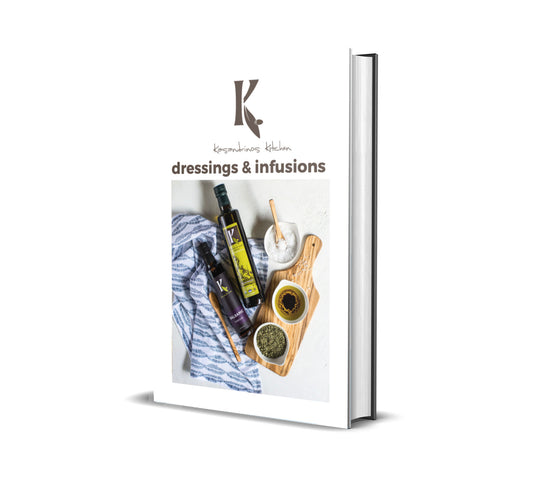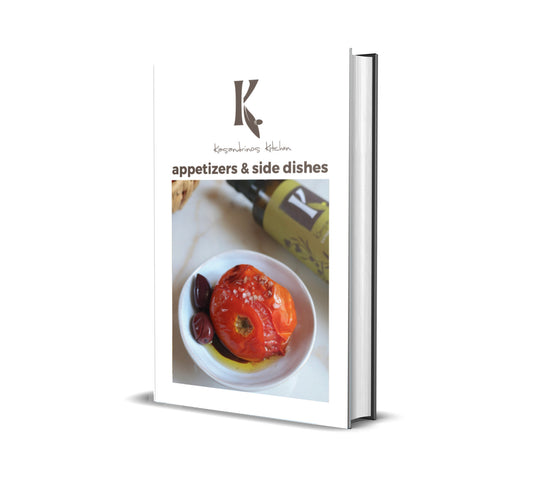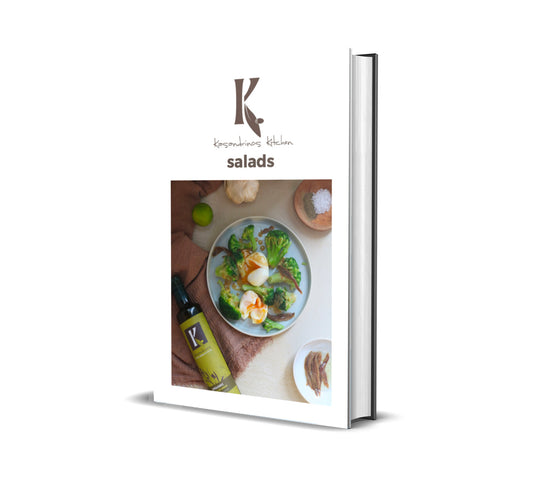Olive Oil and Osteoporosis /Bone Density Article
Osteoporosis, the medical term for “porous bones,” affects about 10 million people aged 50 and older in the U.S. alone. Over 43 million more people have low bone mass, putting them at risk for osteoporosis and more easily broken bones.
Many people believe that weak and brittle bones are a “normal” part of aging, but that couldn’t be farther from the truth. Not only is osteoporosis preventable, but there’s evidence that you can restore bone density and optimize bone health well into your later years.
Interestingly, a number of studies have found that people on an olive oil-rich Mediterranean diet were more likely to maintain healthy bone density and less likely to develop osteoporosis over time. Let’s dive into the science and see how this theory holds up. But first, what is osteoporosis, and who does it affect?
What is Osteoporosis?
Your body is constantly removing and rebuilding bone tissue. So, even the healthiest bones look like a lattice with microscopic holes in intricate honeycomb-like patterns. Osteoporosis is a condition in which new bone mineralization can’t keep up with bone loss, making those tiny holes much bigger and resulting in weak, brittle bones over time.
While osteoporosis and other bone conditions are more prominent in older women, they can affect anyone at any age. In fact, some people report the early stages of osteoporosis as early as their 30s.
Women may start with naturally lower bone density than men, but about 2 million men suffer from osteoporosis in the U.S. alone, and approximately 16 million men have low bone mass.1
Risks and Symptoms of Osteoporosis
Unfortunately, the early stages of osteoporosis don’t trigger any significant warning signs, so most people don’t know that there’s anything wrong until there’s a fracture.
If there are symptoms, they can appear as:2
- Weak and brittle nails
- Weakened grip strength
- Loss of height
- Stooped posture
- Back pain
- Receding gums
People with low bone density and osteoporosis are at high risk of fractures, with the most common breaks being the hips, ribs, wrists, and spine. And these injuries, especially hip fractures, are associated with an increase in all-cause mortality among older people, usually over the age of 65.3
Of course, osteoporosis gets worse over time as bones get thinner and weaker. And with this comes a major increase in the risk of fractures. Osteoporosis and low bone density can also make it difficult to heal from fractures, so it’s best to start optimizing bone health as early as possible.
Extra Virgin Olive Oil For Osteoporosis
Some recent studies on a high olive oil Mediterranean diet suggest that more extra virgin olive oil can lower your risk of osteoporosis. In fact, people living in Mediterranean basin countries are known for having a lower risk of fractures associated with osteoporosis.4
A Spanish study set out to determine just what it was about the Mediterranean diet that kept these populations’ bones so strong. They randomly assigned about 870 study subjects ages 55-80 years old to one of three diets:5
- An olive oil-rich Mediterranean diet (about 1 ¾ oz olive oil per day)
- An identical Mediterranean diet supplemented with nuts (about 1 oz. per day)
- A low-fat diet as the control group
Those with the highest self-reported olive oil consumption had a 51% lower risk of fractures, compared with those who reported consuming the least.
A French study published in the Journal of Agricultural and Food Chemistry found that two phenolic compounds in olive oil could prevent osteopenia (low bone density) and increase bone formation.6
Another study in the journal Osteoporosis International found that the polyphenol oleuropein may enhance bone-forming cells to help reduce bone loss. Bonus: this compound is also found to inhibit the formation of fat cells.7
How Olive Oil Protects Bone Health
More researchers and doctors are coming to terms with the fact that systemic inflammation in the body is an underlying causal factor in most diseases, including osteoporosis.
In bones specifically, inflammation can disrupt the balance between the cells that break down bone (a totally natural process) and build up new bone in its place. This imbalance results in the breakdown of bone tissue without enough cells to rebuild.
Phenolic compounds found in high-quality extra virgin olive oil can help prevent inflammation and oxidative stress —two underlying causes of osteoporosis.
One particular polyphenol, oleuropein, may be the compound responsible for olive oil’s bone-protective properties with benefits like:
- Reducing oxidative stress
- Inhibiting pro-inflammatory cytokines
- Helping stimulate bone-forming cells (called osteoblasts)
Getting the Right Kind of Olive Oil
Unfortunately, not all olive oil is created equal. A 2010 report found that 69% of imported olive oil in the U.S. was adulterated or fraudulently labeled. That means “olive oil” that’s mixed with cheaper, toxic seed oils, arrives on grocery store shelves already rancid, or is improperly labeled.
And since studies surrounding the health benefits of olive oil all require fresh, high-quality extra virgin olive oil, it’s essential to make sure you’re getting the real thing.
To get the best possible olive oil, opt for small-batch, single-origin oil from trees that have been around for generations. Here’s how to choose the best-quality olive oil
Check the Ingredients List
The best olive oils have only one ingredient — high-quality olive oil from a single source. Check your labels for dilution with other oils.
Look for Lot Numbers and Harvest Dates
The best olive oils won’t just have expiration dates; they’ll have lot numbers and harvest dates. The manufacturer should know where every bottle of their oil came from, and only sell oil from the most recent harvest.
Make Sure it’s Organic and Non-GMO
The best olive oil comes from trees that were around before pesticides and herbicides, so they’re naturally organic and non-GMO-certified. Avoid toxic chemicals and make sure your olive oil meets these criteria by looking for the proper labeling on the bottle.
Look for Third-Party Testing
There’s only one real way to know if your olive oil is fresh and authentic or not — a chemical analysis. The best olive will undergo independent, third-party testing for quality and freshness.
If you’re looking for olive oil you can trust, every bottle of Kasandrinos olive oil comes from ancient vines straight from our family’s land in Greece. And every batch goes through rigorous quality standards and third-party testing. That’s how we consistently produce some of the best-tasting, most nutrient-dense olive oil on the planet.
Conclusion
It turns out that high-quality, nutrient-dense extra virgin olive oil may reduce inflammation and oxidative stress in the body, helping to protect your bones from osteoporosis and loss of bone density.
While most people think that weak and brittle bones are an inevitable part of aging, there’s a lot you can do to prevent and even rebuild bone density —no matter how old you are.
My friend Kevin Ellis has made it his life’s mission to help people build stronger bones naturally. And you can get his simple 3-Step Stronger Bone Blueprint here. Kevin’s blueprint helps you:
- Uncover and eliminate stressors
- Restore raw minerals and bone-critical nutrients
- And optimize your body and mind
Grab his simple 3-step approach now and feel stronger, less stressed, and confident that you’re doing something incredible for your body.








2 comments
Great blog post. Thank you for sharing!
I just sent off an order to replenish my supply of your olive oil. It’s such a relief to find a good and consistent olive oil I can use for cooking, salads, etc. I’m hooked! Thanks!